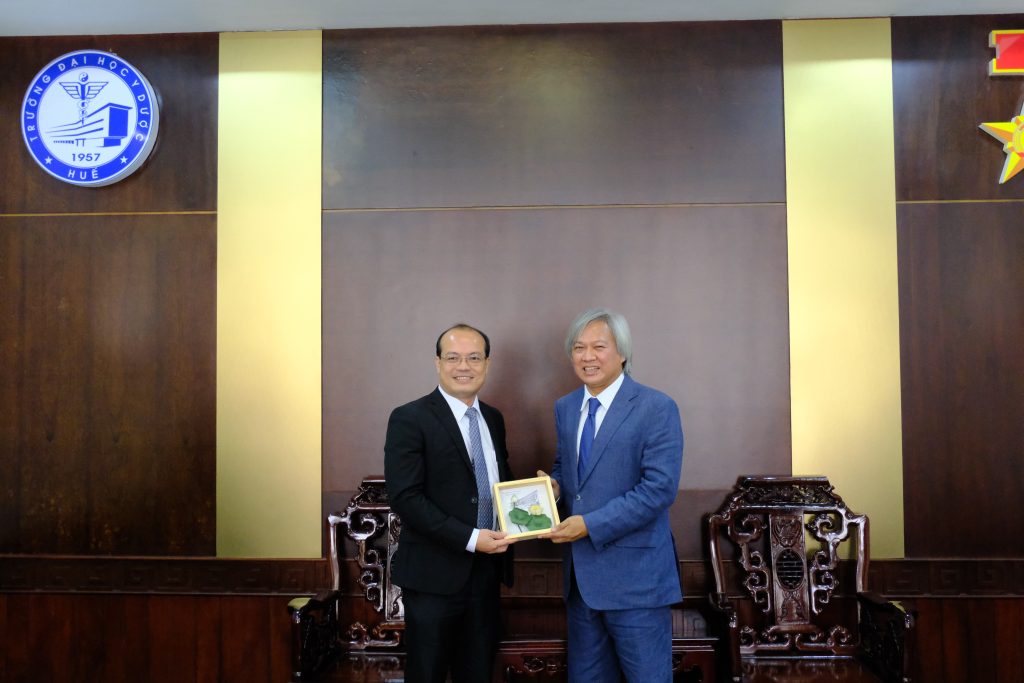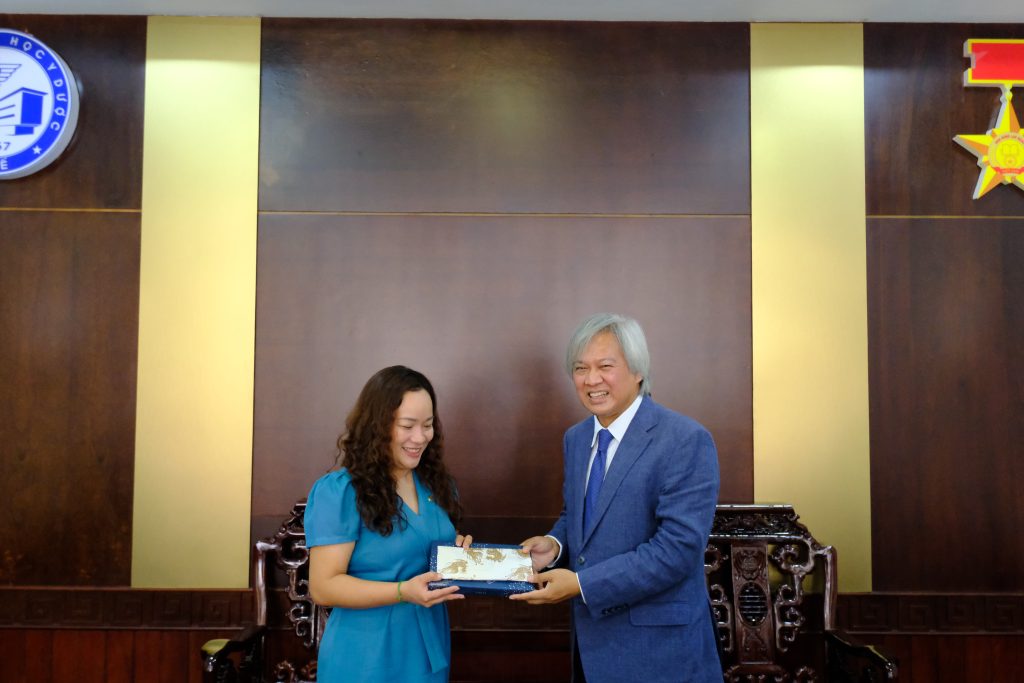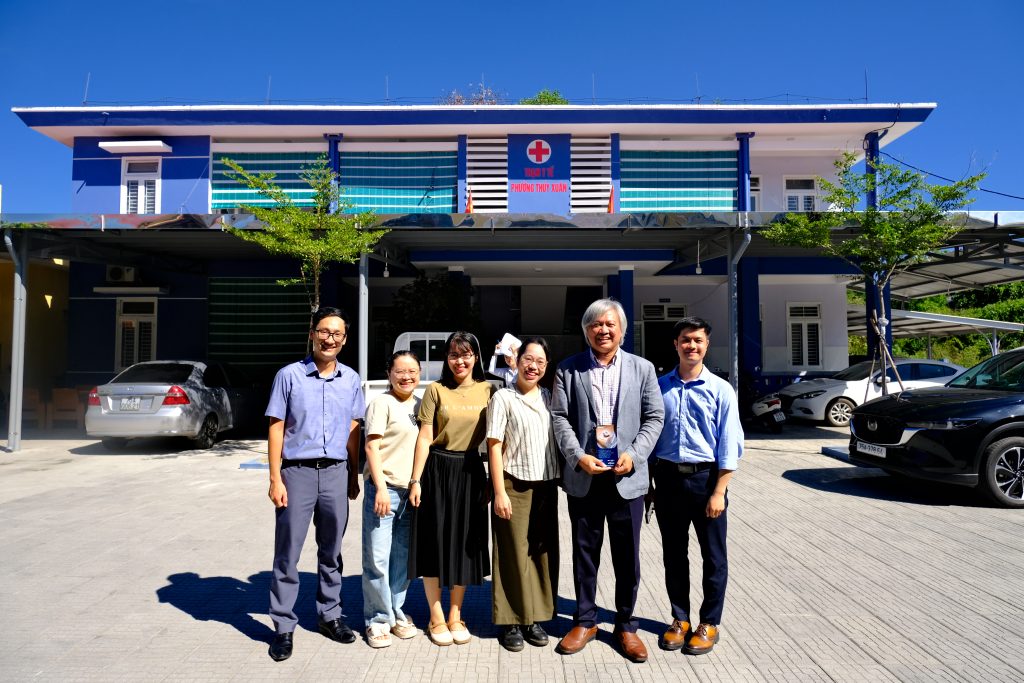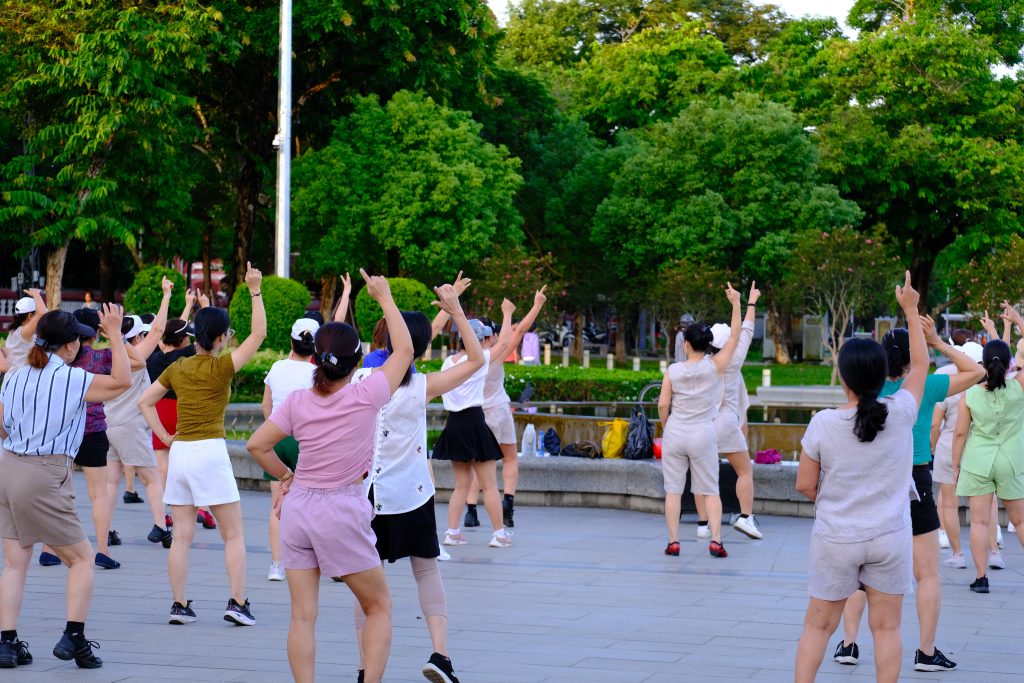Digitally Inclusive, Healthy Ageing Communities (DIHAC) study expanding to Vietnam
Digitally Inclusive, Healthy Ageing Communities (DIHAC) Study being welcomed to Vietnam by Hue University of Medicine and Pharmacy
Digitally Inclusive Healthy Ageing Communities (DIHAC) is a cross-cultural study being conducted in Japan, Republic of Korea, Singapore and Thailand since 2021, the start of Healthy Ageing Decade. It has extended to India in 2024, and Malaysia in 2025. The study has first extended to Vietnam in August 2025.
Recently Principal Investigator of the DIHAC study, Associate Professor Myo Nyein Aung, from Juntendo University, Tokyo has visited Hue city in central Vietnam for expanding the DIHAC study. Vice Rector Associate Professor Dr. Nguyen Minh Tam, Hue University of Medicine and Pharmacy welcomed Professor Myo Nyein Aung. He mentioned the interest in healthy life expectancy of Vietnamese older adults who are living longer.

Figure 1: Vice Rector Associate Professor Dr. Nguyen Minh Tam, Hue University of Medicine and Pharmacy and Dr Myo Nyein Aung, DIHAC study PI, Juntendo University
Dr. Dang Thi Anh Thu , Dean of Faculty of Public Health and team welcomed DIHAC study. The Dean and team exchanged decades-long mutual experiences in public health regionally. Dr Myo shared milestones since 2021 and current experiences of DIHAC study.

Figure2 : Dr. Dang Thi Anh Thu , Dean of Faculty of Public Health, Hue University of Medicine and Pharmacy together with and Dr Myo Nyein Aung, DIHAC study PI, Juntendo University

Figure 3 DIHAC study PI Dr Myo Nyein Aung, Juntendo University and (to his right) Dr. Nguyen Hoang Thuy Linh, Vice Dean of the Faculty of Public Health, Dr. Nguyen Thi Dang Thu, and Dr. Tran Dai Tai Han,Lecturers of the Faculty of Public Health ( to his right) Đặng Cao Khoa Lecturer, Dept. Health Education and Health Psychology – Health Management, Faculty of Public Health Hue University of Medicine and Pharmacy, in front of a primary health care center in Hue city
During the visit the team from Hue University Faculty of Public Health and DIHAC study team visited communities in urban and rural area near Hue city. They met with the directors and team of primary health care centers. Thet had dialogues with older persons who lived in the urban area, who are club and team member for group activities of social and physical activities. Older people shared their experience of using smart phone and internet.
The team also visited rural area. They met with the director and team of primary health care center. They had interactive dialogues with rural community resident older person. Seniors shared their need toward active social participation and health promotion. After the field work, DIHAC study team shared experiences from other countries to construct healthy ageing and for further research collaboration. The team worked on further progress of feasibility, and study plan.

Figure 4 Community residents’ older persons showed their smart phone browsing DIHAC reports in Vietnamese Language
During community visits, Hue University team introduced the DIHAC cross-cultural meeting reports written in Vietnamese language to the seniors. DIHAC study reports are currently in English, Japanese, Spanish, Korean, Vietnamese and Thai Languages for the public access to cutting edge knowledge. It was the first step of DIHAC study cross-cultural research collaboration successfully started in Vietnam.

Figure 5 Community-based social Innovation (CBSI) for healthy ageing in Hue city Vietnam, 2025
Furthermore, the teams observed various groups of community based social activities in Hue. They interacted with senior citizens participating in group exercise activities along the perfume river of Hue city and observed community based social innovation (CBSI)s. As Vietnam is embracing longer life-expectancy and population ageing, it is important to invest in digital inclusion of older persons and construct healthy ageing in culturally tailored approaches, minimizing the urban and rural differences. DIHAC study is expected to exchange cross-cultural evidence from unique setting of central Vietnam and other countries which are experiencing population ageing, bringing scholar opportunity and new research.
